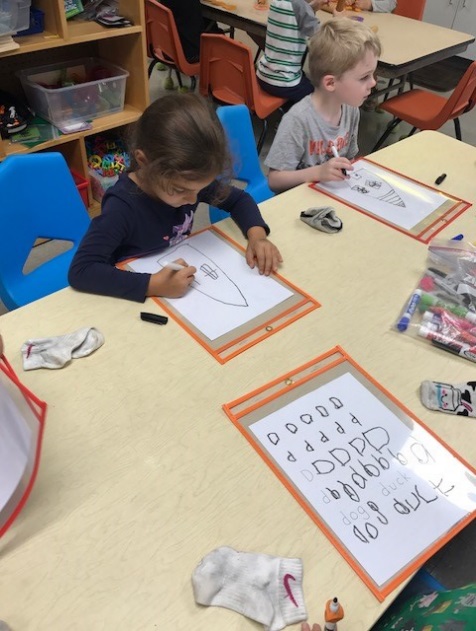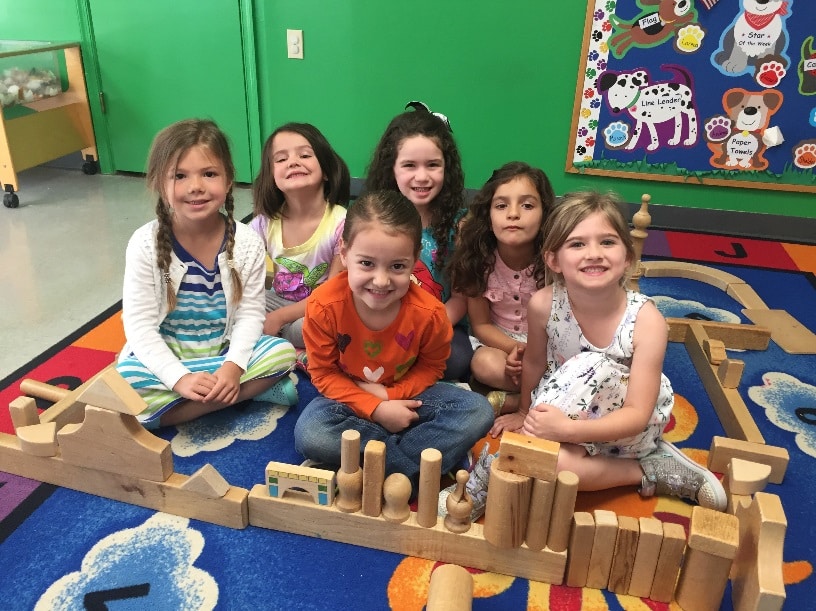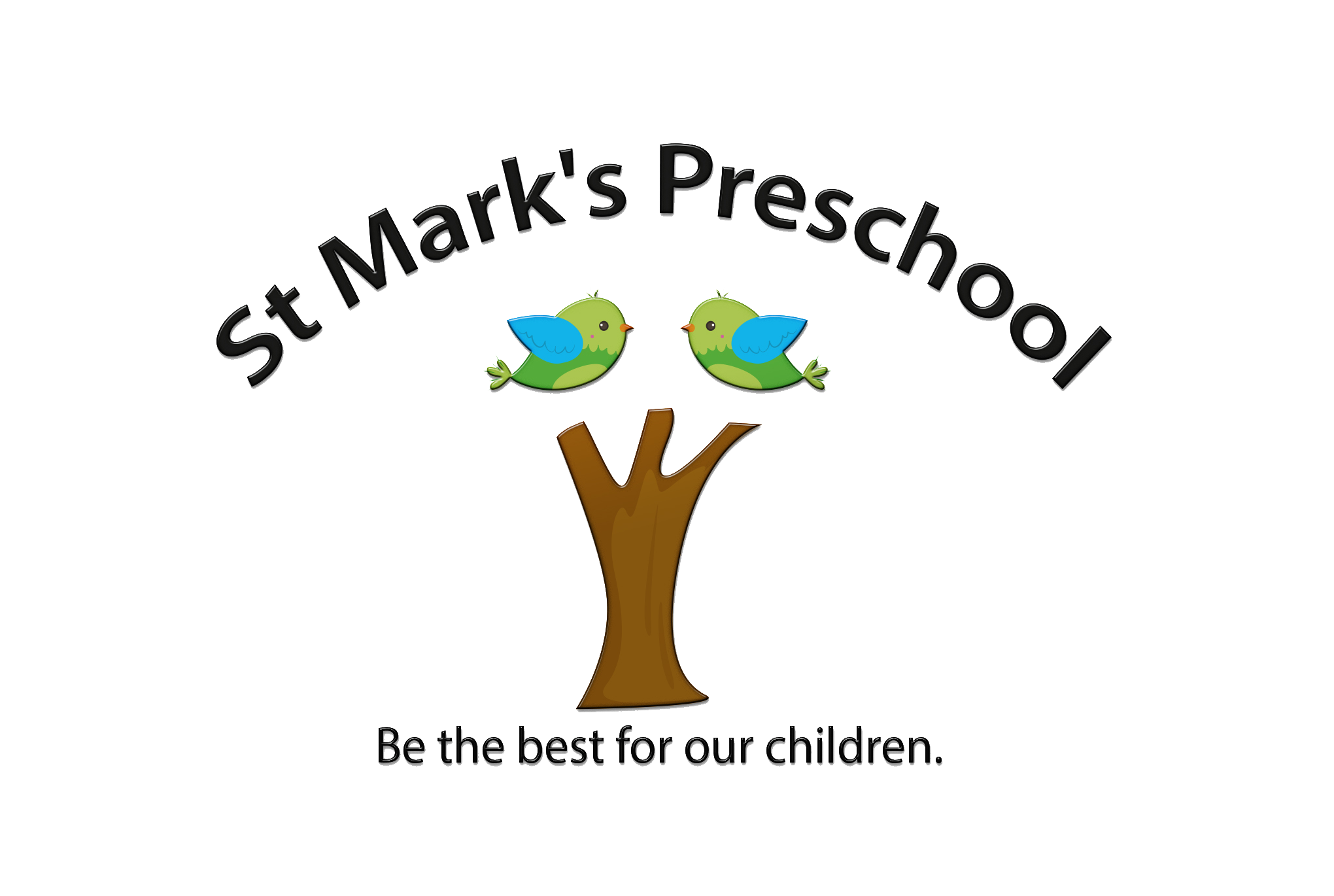
Welcome to our Junior Kindergarten
Our JK program is designed to ready the children for the Kindergarten school year. The teachers in the classes follow a distinct curriculum designed especially for the natural progression of learning in an older 4 or 5 year old child. Through the use of games and activities the teachers will prepare the children for the demands of school focusing on academics as well as social skills. All children benefit by learning in a group environment. They will learn to follow instructions, raise their hands when they ask a question, take turns, and share the teacher’s attention. The classes all share the same curriculum and are unique in the way it is taught depending on the individual teachers’ lesson plans. The curriculum includes letter and sound awareness, fine and large motor skills, math concepts including graphing, ordering and measuring, puzzle manipulation and spatial understanding, rhyming sounds, patterning and print rich environments to list a few. The classes will partake in our bi-weekly music and movement class with our Music teacher as well as a bi-weekly Spanish class taught by a certified Spanish teacher. Our yearly programs include a Halloween Parade, Christmas Program, Art Extravaganza and an End of the Year Celebration. The classes will go outside to our playground each day for a minimum of 30 minutes. There will be an enrichment period during each day when the teacher and the assistant will reinforce concepts that have already been introduced. You will receive a phone call home in the fall to touch base with how your child is adjusting to school as well as a face to face scheduled conference in the spring. You child will receive a written progress report at the end of the year.
The program uses a science unit from Scholastic as well as elements from Learning without Tears and Wonder Filled Weekdays.
Our curriculum is based on the Virginia’s Foundation Blocks for Early Learning.
Junior Kindergarten Objects (same as PreK with added curriculum)
Language Arts: Recognizes first and last names, writing first name, rhyming, proper care of books, instill a enjoyment for books, increase listening skills, recognize opposites, begin writing skills, recognize upper and lower case letters and sounds, use language to express ideas and gain information, develop visual and auditory sounds, and be able to relate an experience verbally.
Junior Kindergarten to add: begin to recognize high frequency sight words, begin phonetic skills, begin early reading, communicate ideas through journaling, understanding that letters represents sounds, and begin to identify beginning consonant sounds.
Math skills: rote count to 20 or higher, recognize number 1-10 or more, recognizes and draws basic shapes, sort objects by size and shape, learns one-to-one correspondence, begins learning time concepts, becomes familiar with math terms (more, less), patterning, compare sets (more and fewer), counts objects to 5, introduction to graphing, measurement with solids and liquids, as well as spatial understanding with puzzles.
Junior Kindergarten to add: recognize numbers to 20, begin basic math computation skills (addition, subtraction) introduce time and money concepts, position and ordinal numbers (first, second etc.) shapes and spatial relationships, and count forward and backward from 20.
Science Units: Recognizes seasonal changes, predict and experiment, learn about animals and their habitats, investigate nutrition and dental health, experiment with water, magnets, shadow, color and sounds, body parts, learning about our planet Earth, and investigating dinosaurs and fossils.
Social Sciences: Learn about families and their customs, exploring community helpers, understanding different cultures, learn about United States leaders and its symbols, geographic location, and explore different types of transportation.
Motor Development: Gross motor: Gain general coordination of movements to include climbing, jumping, running, balancing on one foot, throwing, catching, kicking a ball, riding a tricycle Fine Motor: sting small beads, correct pencil hold, cutting paper with scissors, and complete age appropriate puzzles.
Creative Arts: Be able to work more independently at the free art table, Use imagination to play or tell stories, act out familiar songs, stories, rhymes, recite familiar songs, experiment with the use of various art mediums, use art to show emotion, and explore different types of musical instruments.

